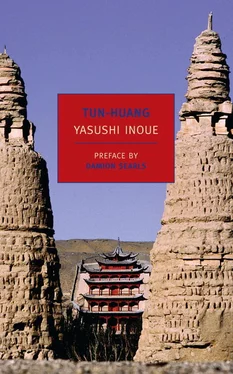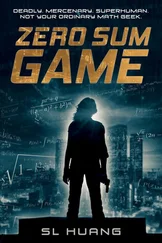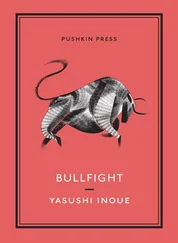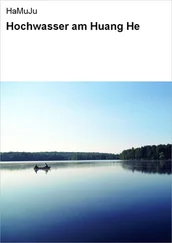The next day Hsing-te visited the hut with his breakfast rations and some water, taking care not to be seen. He could not see the girl when he peered inside and thought she might have run off, but when he entered, he found her hidden in the cellar as he had instructed.
Hsing-te told her that he had brought food and water, and he left as soon as he had placed them in the aristocratic hands that stretched out from the cellar.
That afternoon part of the main army, led by Li Yüan-hao, reached the city. It was supposedly just a small unit of the troops stationed outside the city, but the garrison soon brimmed over with Hsi-hsia soldiers, whose physique and facial structure differed from the Chinese. Hsing-te now realized that his unit’s battle had been only a small part of the whole operation. Along the upper reaches of the Black River, which ran from north to south on the west of Kan-chou, and in the middle regions of the Shan-tan River, which Hsing-te’s unit had crossed on its march to Liang-chou, great clashes had taken place between the main armies, with the Hsi-hsia army victorious in both. It was said that the Uighur army had retreated on all fronts and sped westward, as though a meeting place had been agreed between them in advance.
From the third day of the occupation, first the Uighurs and then various other natives of Kan-chou began to come out of hiding and return. The strange way in which they appeared made one wonder where they had been. Naturally, only a very small fraction of the civilians had returned, but nonetheless the garrison regained the atmosphere of a bustling town. Food shops were opened and vegetable markets sprang up. But for good reason no woman was yet in sight.
Hsing-te furtively gave food daily to the girl. On the fifth night when he brought her dinner as usual, he did not find her in the cellar. He thought that she had disappeared for certain this time. Shortly after, however, she returned from outside. When he reproached her for taking such a risk, she assured him that there was nothing to worry about, as she had been going out each night to wash her face and to drink water.
The girl stood near the entrance of the hut. In the waning moonlight which streamed in the door, she was clearly visible. There was no longer wariness or fear of Hsing-te in her expression.
“Why do you take the trouble to bring me food like this?” she asked in her characteristically clear voice.
“Because I want to save your life.”
“Why do you want to save it?”
Hsing-te was at a loss for an answer. From the moment he had discovered the girl on the beacon tower, he had been obsessed with the thought that it was his mission to save her, but he himself could not understand why he felt this way. As Hsing-te remained silent, she repeated, “You say that you want to save me, but I don’t want to stay here forever. How long will I have to stay here?”
Her tone was petulant. He felt that she was being some-what willful, but Hsing-te was not angry; he merely tried to find words to console her.
“The number of Uighurs in the city is increasing daily. As yet there are no women, but they should be returning soon. When that happens, you can leave this place and look after yourself.”
When Hsing-te finished, she said, “I am a woman of royal birth. If I’m caught, I’ll probably be killed.”
“You can hide your royal background. And when you have the opportunity, you can escape from this city and head west as your tribesmen did.”
Even as he spoke, Hsing-te knew that his words lacked conviction. He could not imagine how this girl, with her evident aristocratic air could possibly make her own way to her people.
Tonight was the first time that Hsing-te and the girl had conversed at any length. He could not bear to look at her for long. He could not tell whether it was her refinement or her dignity which confused him so, but there was something about her thin face, with its clear-cut features, and her delicate, fragile form which stirred Hsing-te profoundly.
On the seventh day after they had entered Kan-chou, Hsing-te was called in by Wang-li. Wang-li had taken over a house with three large jujube trees shading the small garden. From the dirt floor, he called out, “You told me that you wanted to learn Hsi-hsia writing, so I’ll let you go to Hsing-ch’ing. This proves that I’m really a man of my word, doesn’t it? As soon as you learn Hsi-hsia, come right back.” Then he informed Hsing-te that there was a unit leaving for Hsing-ch’ing the next day and that he was to go with it and obey the orders of its commanding officer.
“I’m to be commander of a very large unit soon. When you return I’ll make you my chief of staff.”
Wang-li was then commander of five hundred men but, as he had just said, it was certain that he would soon be put in charge of a much larger unit, through official recognition of his distinguished service.
Hsing-te was very grateful for this opportunity, but he was concerned about what to do with the girl if he were to leave the next day. When Hsing-te asked for a two-week delay, Wang-li took affront and shouted angrily, “You leave tomorrow! Those are my orders!”
Hsing-te realized that he must give in to his simple-minded, fearless commander, who regarded him so highly.
That night Hsing-te told the girl that he was leaving, but that she was not to worry, because he would introduce her to someone else who would look after her. He planned to tell Wang-li about her just before his departure and to ask his help in protecting her.
The girl came out of the cellar and stood by the door. Her whole body suddenly stiffened with fear, and she pleaded, “I can’t trust anyone but you. Please stay a little longer!”
When Hsing-te explained that he had to go regardless of his own feelings, the girl suddenly knelt on the dirt floor and wept bitterly, raising her arms in supplication.
“Do you know why I was alone on the beacon tower?”
Hsing-te had questioned her about this once or twice before, but she had not replied. As if to prove her gratitude to him, she now explained. “I was waiting there for my betrothed. I had set off with my family, but on the way I remembered his promise to return to the city as long as he was alive. That’s why I slipped back to the city alone. That’s why I went up the beacon tower, but you found me there. I think my fiancé was killed in battle and his soul sent you to me in his place. I can think of no other explanation for a person like you. And you tell me that you are going to desert me after all this?”
Hsing-te watched the heaving shoulders of the girl as she lay weeping on the earthen floor. The stones of her necklaces glistened icily in the moonlight as they shook with her weeping.
He went to the girl and gently tried to lift her from the ground. For some reason she instinctively pulled herself up and looked squarely at Hsing-te. Until this moment Hsing-te had been conscious of no particular feeling for this girl, but when the cold night air wafted the feminine scent of her body toward him, he was suddenly overcome by his desire to possess this beautiful creature.
After a while the girl stopped resisting and meekly let Hsing-te have his way with her. When he had regained his composure, Hsing-te was swept with shame for what he had done. He felt that there was no excuse for his actions, and his heart was heavy with sorrow. As he turned to leave, the girl clung to his legs.
“Please forgive me. I acted like a beast just now, but I was not myself,” Hsing-te apologized.
“I know that very well,” the girl replied. “You love me, and you are the incarnation of my former fiancé.”
“Yes. I do love you, and I truly must be the incarnation of your lost fiancé. This was predestined. If not, why would fate have brought me from the distant Sung capital to a place like this?” Hsing-te had unconsciously used the girl’s own words.
Читать дальше












